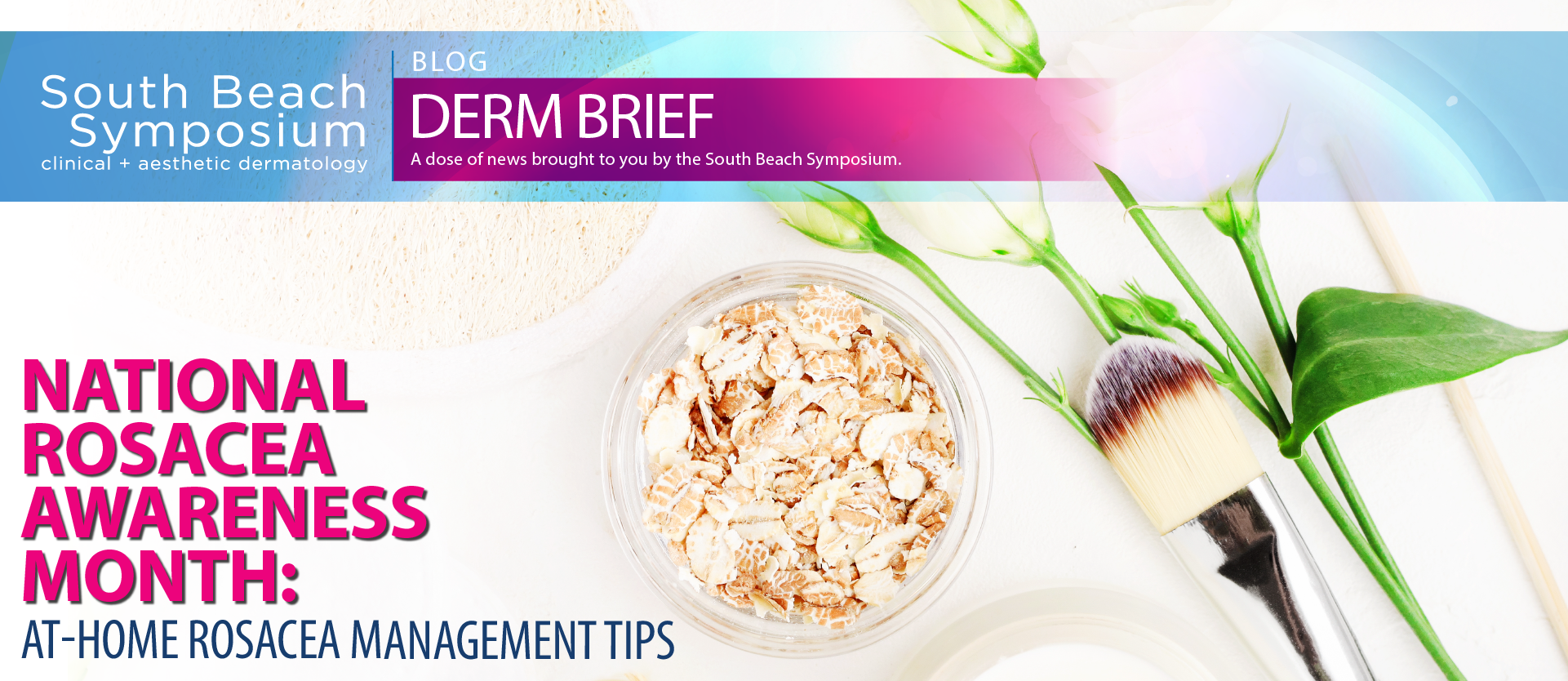The month of April celebrates Rosacea Awareness Month, designated by the National Rosacea Society to spread public awareness and education on the wide-ranging impact of the prevalent skin disorder. Current data estimates the chronic facial condition affects over 16 million Americans, causing discomfort and reducing quality of life. Thus, many patients with rosacea rely on prescription medications and cosmetic treatments to control its symptoms.
With the COVID-19 pandemic impeding routine clinical dermatology practice, aesthetic medicine practitioners have had to transition to online models of care, postpone elective surgeries, and cancel non-emergency in-person visits. Meanwhile, patients may face other difficulties such as issues with purchasing their regular skincare products and picking up prescription medications due to COVID-19 quarantine measures. Over the past few weeks, dermatologists have reported an increasing number of rosacea flare-ups in patients – a sign of heightened stress levels being experienced by the population.
As such, many are turning to teledermatology to access routine care and home-based treatment alternatives to manage their symptoms. While the number of therapeutic options continues to grow, some patients may be inclined to test out the popular natural, home-based alternatives to clinical rosacea management detailed below.
Home Management Strategies for Rosacea
Improve Dietary Choices
Processed foods, chemicals, and high-sugar foods are known to cause systemic inflammation, which can promote the inflammatory processes of the skin and redness commonly associated with rosacea. One of the primary strategies for managing the condition is improving dietary choices; this includes eliminating triggers and adding nutritious foods.
In addition, patients should be advised to avoid dietary triggers that can aggravate rosacea such as eliminating or limiting alcohol and caffeine consumption, hot showers, and spicy foods. Patients who may not be aware of their individual dietary triggers should be urged to keep a food diary to determine exact food, beverage, and spice reactions.
Choose Skincare Products Consciously
Patients suffering from rosacea tend to have sensitive skin, which can be easily irritated by certain skincare ingredients, including alpha hydroxy and beta hydroxy acids, retinol, and alcohol. Experts recommend gentle washing, avoiding abrasive scrubs, as well as limiting chemicals and non-natural ingredients to help reduce the likelihood of rosacea flare-ups.
According to dermatologist Dr. Marnie Nussbaum’s advice published in Town & Country Magazine, patients should be urged to seek out anti-inflammatory natural alternatives whenever possible. Nussbaum suggests fragrance-free products containing antioxidants – green tea, niacinamides, and ceramides – which can decrease redness and improve the skin’s barrier. “Natural calming ingredients like cucumber and chamomile extract can reduce redness and irritation,” she mentioned in the article, “Turmeric-containing creams are also powerful anti-inflammatory products that can help with flares.”
Additionally, the National Rosacea Society has provided guidance on recommended skin care products and cosmetics that may be helpful to inform patient decisions.
Moisturize Daily
In its guide to skin care tips for rosacea patients, the American Academy of Dermatology emphasizes the importance of moisturizing the skin every day, which can help reduce irritation as well as dryness. Using a rosacea-friendly moisturizer or barrier repair cream twice a day has been proven to improve patient comfort levels, as well as peeling, roughness, and other common rosacea symptoms.
Minimize Stress Levels
Anxiety and high levels of stress contribute to increased cortisol production, which in turn leads to systemic, body-wide inflammation that can trigger eczema and rosacea flare-ups. While it may be difficult for both patients and providers to minimize stress levels during the current global health crisis, several relaxation techniques can help alleviate tension and quell the inflammatory response. Relaxation strategies, including yoga and meditation, can have a calming effect on the skin; patients can also try to incorporate several moments of mindful deep breathing throughout the day to ease their nervous system. Another simple change that can make a big difference is the improvement of sleep patterns.
As rosacea is reactive to environmental triggers and emotional wellbeing, it can prove difficult to control in these uncertain times – particularly with a widespread reduction in non-emergency dermatology appointments. Alongside the at-home rosacea management techniques outlined above, an emphasis on healing the skin and promoting overall wellbeing can help patients suffering from flare-ups at home or prevent the onset of symptoms in the future.
With the help of teledermatology technologies, clinicians can still see patients, prescribe medication, perform routine visits, and provide much-needed care at a safe distance. Dermatology practices interested in adopting the online healthcare model can find more information and guidelines for implementing telemedicine here.

















